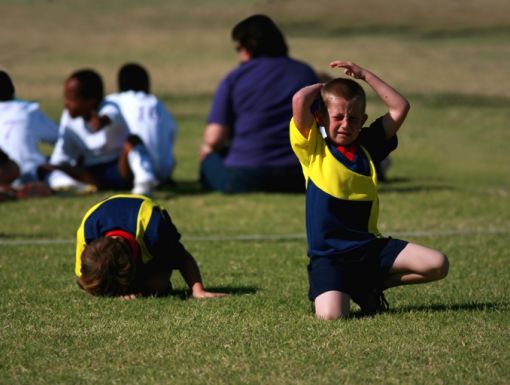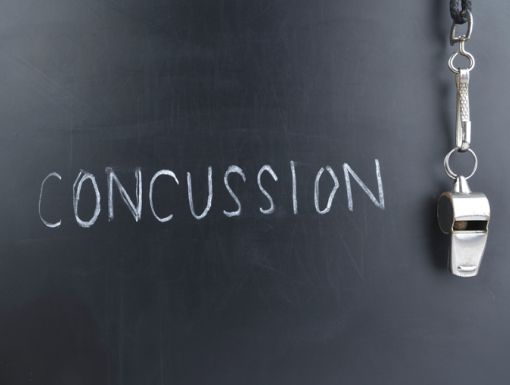
Tests for a Concussion
Fall is upon us and for many football parents, the anticipation of seeing their child excel on the field is countered by concern for their safety. Historically, parents, coaches, and players alike have all easily recognized and accepted the inherent football risks of broken bones and blown out knees, but often the threat of injury to the brain - specifically that of concussion - was an afterthought.
Concussion prevention is a tricky subject, with very few interventions – including new technologies in helmets, headgear, and mouth guards – currently showing a significant reduction in concussion rates among athletes. Fortunately, concussion awareness is steadily improving through both school-based and community education initiatives and media coverage.
Quick recognition and appropriate treatment of concussions has been identified as essential for achieving the ultimate goal for parents, athletes, coaches and physicians alike: returning the concussed athlete back to sports as quickly, and safely, as possible.
When evaluating an individual for a possible or known concussion there are four common facets considered by the physician:
-
Symptoms reported by the patient;
-
Physical exam – specifically a full neurologic exam;
-
Balance testing; and
-
Neurocognitive assessment.
To aid with the neurocognitive assessment of a suspected concussed athlete, one tool in the toolbox of concussion specialists may be computerized neurocognitive testing. There are many screening-type tests available for use in the evaluation and management of the concussed athlete utilized both nationally and globally.
ImPACT, or Immediate Post-Concussion Assessment and Cognitive Testing, is one of the most commonly used neurocognitive assessment tests. ImPACT aims to evaluate the patient for potential adverse cognitive effects that commonly occur after a concussion, including deficits in memory, processing speed, and reaction time.
It’s important to note that ImPACT testing on its own is not enough to diagnose concussions, and results should be used in conjunction with the previously mentioned components of a complete concussion evaluation. For best results, the examiner should compare the potentially-concussed athlete’s performance on ImPACT after his/her concussion to that of their pre-injury baseline testing. Comparison of the two tests helps to better determine if the injury may have caused adverse cognitive effects.
Baseline testing is usually done pre-season in the school’s computer lab, supervised by the school’s athletic trainer. It can also be done in a physician’s office that provides Baseline ImPACT testing. The test takes about 20-25 minutes to complete and the results are then kept on file in the ImPACT database. These baseline test results are then able to be used for comparison to post-injury testing after an athlete is suspected to have a concussion.
This testing performed both before and after a head injury informs physicians whether the cognitive function of that athlete shows decline from the athlete’s norm, suggesting adverse cognitive effects from their head injury and concerning for a diagnosis of concussion.
If the post-injury test does show decline from the athlete’s original baseline, follow-up ImPACT testing over the course of the athlete’s recovery is often used to gauge cognitive recovery back to the athlete’s pre-concussion baseline status. In this way, the managing physician may prevent premature return to play that would have otherwise put the athlete at higher risk for failing their return to play schedule – or worse, repeat concussion.
Baseline ImPACT testing is available to the general public through the Ochsner Concussion Management Program. More information about the program and concussion management can be found at www.ochsner.org/services/concussion-management-program.
To schedule a baseline test for your athlete contact the Ochsner Concussion Management Program today at 866-624-7637.



